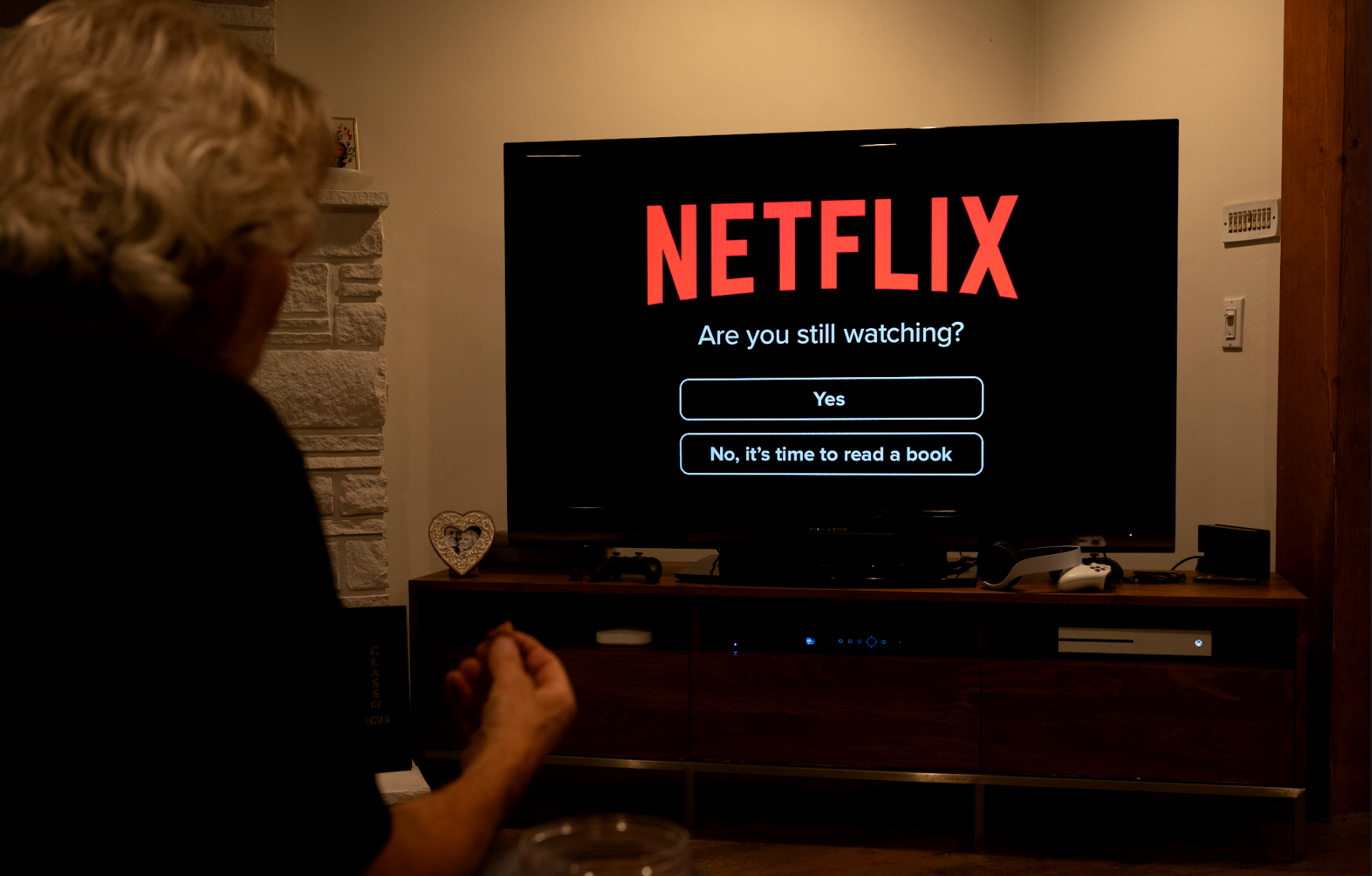TRUTH MATTERS… Donate to support excellence in student journalism
Binge watching is a common activity many have engaged in, often telling themselves that just one more episode won’t hurt.
Many people assume binge watching is not harmful.
However, binge-watching can indeed be harmful — to yourself.
Binge watching is the overconsumption of media, usually in the form of video content, for hours on end.
While not a new phenomenon in today’s technology-driven era, it is important to be aware that binge watching can negatively affect both mood and health.
According to Northwestern Medicine, watching shows in such an obsessive manner often induces a high, due to major releases of dopamine, similar to the high experienced when using drugs.
Dopamine is the chemical in the brain responsible for feelings of pleasure and excitement. While dopamine provides the exhilarating feeling we feel during weekend Netflix sessions, there needs to be a limit.
Katherine Wheeler, a clinically licensed social worker, warns against the destructive cycle binge watching can result in.
“Binge watching creates a cycle of seeking dopamine hits, leading to an addictive behavior loop,” she said. “Over time, the brain becomes desensitized to this dopamine, making it harder to feel satisfied.”
Binge watching and excessive screen time tend to release dopamine levels past a healthy threshold, resulting in issues like poor impulse control, anxiety, aggression, binge eating and depression.
Another issue that can arise from binge watching is insomnia.
Due to the high levels of dopamine you produce when binging, the mind is not calm enough to rest.
Doctor-verified research published on Nemours TeensHealth, a website dedicated to raising basic health awareness for youth, reveals that abnormally high dopamine levels can result in difficulty falling asleep, an effect worsened by the blue light screens constantly emit.
The importance of sleep is commonly underestimated among today’s generation of teens.
“I get very little sleep every night and function just fine,” sophomore Johana Sanchez said.
However, studies show that skimping out on those precious hours of sleep significantly impacts both physical and mental health.
According to the National Heart, Lung and Blood Institute (NHLBI), sleep plays a significant role in determining your mood throughout the day. Without enough sleep, people are far more likely to wake up irritable or grumpy.
Further, problems exist beyond sleep issues. Binge watching promotes unhealthy lifestyles through the exposure to advertisements.
“TV viewing may also promote poor dietary behavior due to frequent exposure to unhealthy food and beverage marketing,” Harvard director of health promotion Lilian Cheung said.
Marathoning through a few comfort shows occasionally is acceptable, but extreme binge watching can pose significant threats to mental health.
According to the National Institutes of Health (NIH), binge watching is highly associated with isolation, anxiety and low mental states. Regularly watching fictional scenarios instead of living real life increases the likelihood of loneliness.
A poll by the American Psychiatric Association reported that one in three Americans struggle with loneliness. Roughly 50% of these individuals reported using TV, social media and podcasts to escape from this.
Viewers may believe that binge watching is harmless, but far too often, that’s just not the case. Although it may feel good in the moment, the dangerous consequences it yields later on are manyfold.
As with all things, finding a healthy balance of enjoyment and responsibility is key.
Try limiting yourself to just a couple episodes per week. This way, you’ll mitigate adverse side effects while continuing to watch the shows you love.
As long as we remember to enjoy binge watching in moderation, we’ll be fine.
This article originally appeared in the Fall 2024 print edition.




